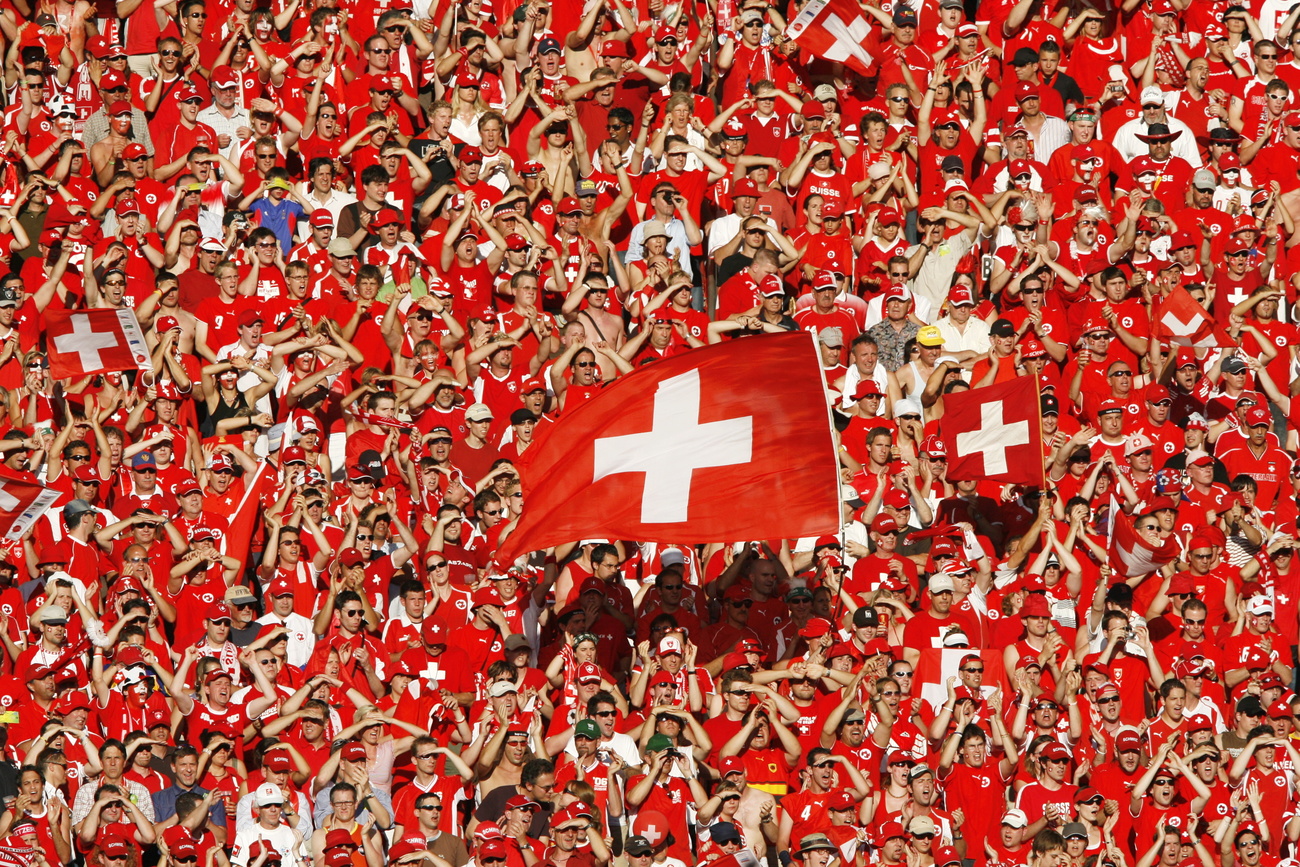
Strict anti-Covid measures applied to Swiss mass events

The government has announced a series of conditions for the resumption of mass events in Switzerland, which have been limited since March to curb the spread of coronavirus infections.
Interior Minister Alain Berset, whose portfolio includes health issues, said events with more than 1,000 participants were important for society, notably sports and culture, as well as the economy.
“It’s good news for the public, but it’s a huge responsibility for the organisers,” Berset told a news conference on Wednesday.
As of October, mass events need permission by cantonal authorities which have to base their decisions on the epidemiological situation in the region and the tracing capacities. Organisers also have to put in place protection measures to prevent a new spike in Covid-19 cases.
National football and ice-hockey matches – the most popular sports events in Switzerland – are also allowed to admit crowds of spectators again.
Crowds
However, spectators must wear hygiene face masks and be seated. The maximum number of sold tickets must not exceed two thirds of the normal capacity. The sale of alcohol will be permitted.
Berset said Switzerland was one of the first countries in Europe to authorise a return of mass events.
“It’s another step towards normalising the situation without losing control,” he said. The government introduced sweeping restrictions on public life in March and started easing them gradually three months later.
However, Berset warned it is crucial for Switzerland that the pandemic remains under control during the autumn and winter months.
He acknowledged that the government decision made it particularly difficult for organisers of cultural events.
In a first reaction, the cantonal authorities have described their task as “very challenging”.

More
Sports clubs want fans returning to matches

In compliance with the JTI standards
More: SWI swissinfo.ch certified by the Journalism Trust Initiative















![The four-metre-long painting "Sonntag der Bergbauern" [Sunday of the Mountain Farmers, 1923-24/26] had to be removed by a crane from the German Chancellery in Berlin for the exhibition in Bern.](https://www.swissinfo.ch/content/wp-content/uploads/sites/13/2025/12/01_Pressebild_KirchnerxKirchner.jpg?ver=f05a5a9c)














You can find an overview of ongoing debates with our journalists here . Please join us!
If you want to start a conversation about a topic raised in this article or want to report factual errors, email us at english@swissinfo.ch.